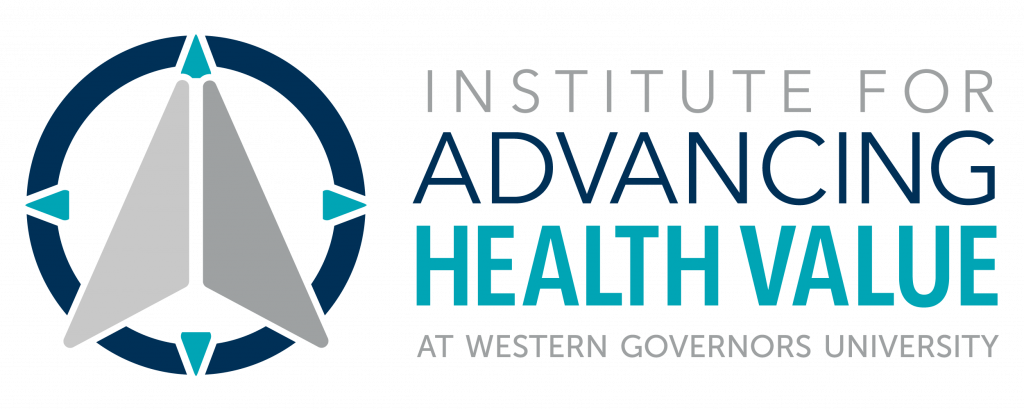Dear Colleagues,
The past 15 months have been a very dynamic period in our history – from the pandemic and its associated impacts on health, employment, and the economy (just to name a few) – to the presidential election and change of Administration.
As we consider what lies ahead, we are more certain than ever that value-based care (VBC) will become an imperative for the US health system. With her swearing in as CMS Administrator on May 27, 2021, Chiquita Brooks-LaSure will quickly rally her colleagues to define the path forward for the many existing and planned initiatives that support the movement to value.
In a recent broadcast, the Health Affairs Policy Spotlight: The Biden Health Agenda with Liz Fowler, Director of CMMI, Dr. Fowler detailed many priorities for the CMS Innovation Center. We would like to draw your attention to just a few that strongly align with our work and mission at the Accountable Care Learning Collaborative – to accelerate the transition to and support success in VBC.
Advanced primary care and “doubling down” on the role of primary care in a high performing health system. The ACLC has long recognized the value of primary care as a cornerstone of effective population health and better health outcomes. Here are some of our recent resources on this topic:
- Primary Care Innovation Part I: Profiling Disruptors in the Advanced Primary Care Market
- Primary Care Innovation Part II: An Analysis of Major Players and Developments in Advanced Primary Care
- Primary Care Innovation Part IV: The Rise and Role of Retail
- Peer Learning Series – Advanced Primary Care: Full-Risk Capitation is a Lifeline for Primary Care During the Pandemic: ChenMed
The potential of the Direct Contracting (DC) model (currently paused on accepting new applications) to positively impact the system, while both levelling the playing field and enabling innovation. We have been closely following the evolution of the DC model and glidepaths for ACOs and others looking to take on more risk:
- Choosing Your Path in Value: Direct Contracting vs. MSSP
- CMS Shares Final Details of Geographic Direct Contracting Model
- CMMI Announces Direct Contracting Model’s First Cohort and Postponement of Second Cohort
Care delivery in the least restrictive setting, including digitally-enabled and home-based care. In the wake of the pandemic, we’re seeing asset-light and technology-enabled care models gaining more traction and enhancing access to care for patients:
- Overview of the Digital Health Landscape
- Primary Care Innovation Part III: An Analysis of Trends and Investments in Home Care
- Remote Patient Monitoring Extends the Patient-Provider Relationship Beyond the Office Walls: Pak Medical Group
- Home-Based Primary Care – Higher Value for Medically Complex, High Cost Patients: Doctors Making Housecalls
More consideration in payment models for addressing and accounting for the impacts of social determinants of health (SDOH). Social and environmental factors impact health outcomes in substantial and complex ways. We have a forthcoming, three-part series on this topic that examines how CMMI has approached this topic in the Accountable Health Communities and other models, private sector activities, and the outlook for future efforts. Please stay tuned for more on this important topic!
Other identified priorities that we believe are strongly aligned with value-based health care include:
- Meaningful care relationships between patients and providers, including accountability for cost and quality outcomes and alignment with patient values
- Inclusivity of future payment models, including more opportunities for Medicaid and private payers
- Attention to mental and behavioral health care, and how these can be more effectively coordinated and integrated with physical health care
The ACLC will closely monitor how the Administration’s emphasis on equity will be operationalized through CMMI and other models. We join many others who are deeply motivated to address and diminish inequities in our country and in our health system. We are particularly concerned by a recent study that describes a possible worsening of disparities in the CMMI Comprehensive Care for Joint Replacement model, so we support the efforts of CMMI to review, revise, and develop future models that take deliberate steps to improve their reach and impact on disparate communities. We also welcome the recently announced Health Equity Advisory Team (HEAT), an initiative of the Health Care Payment Learning & Action Network. Dr. Jose Pena, Chief Executive and Medical Officer at ACLC member organization Rio Grande Valley ACO, is a HEAT Member and we anticipate their positive influence on advancing equity through deliberate APM design.
We applaud Dr. Fowler’s intended focus on investment in health system transformation, clearing a way for innovators while providing more support for those who might struggle to participate due to past administrative requirements and burden. VBC has historically enjoyed bipartisan support and the imperative for accelerating the move to value is only more poignant in the wake of the pandemic. While we don’t expect that fee for service payment models will end entirely in the near term, we expect that new opportunities to align payment with outcomes will be emerging in the months and years to come and we look forward to actively supporting the Race to Value.
If you are not already a member, there has never been a better time to join with us at the ACLC to benefit from our intelligence and case study briefs, peer networking opportunities, interviews with industry thought-leaders. Very shortly, we’ll launch a new effort to develop the value-based health care workforce of the future, through competency-based education and certificate programs.
Value-based care is both an economic and a moral imperative. The ACLC is proud to be your partner in the value journey.
Warm Regards,
Eric Weaver, DHA, MHA
Executive Director, Institute for Advancing Health Value

